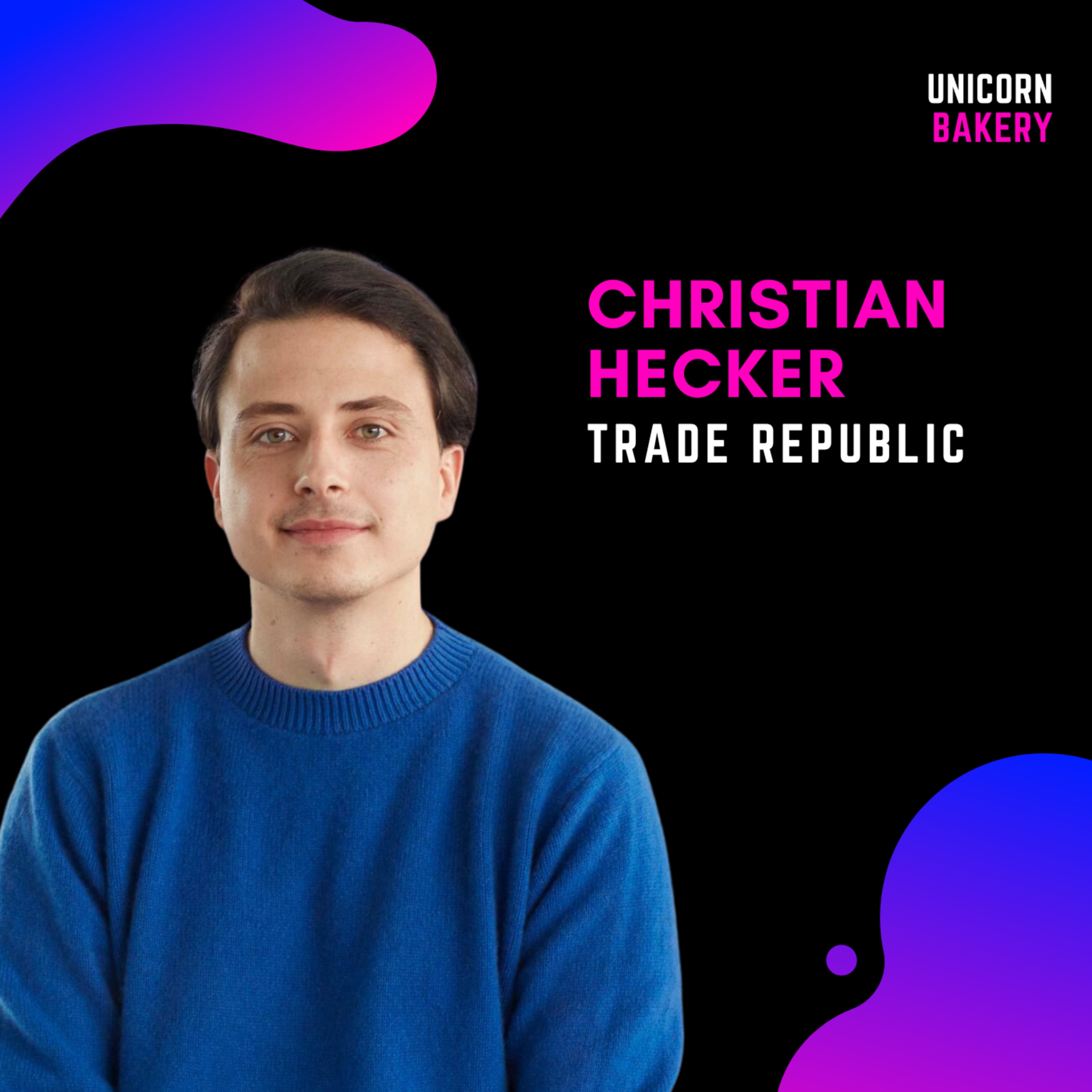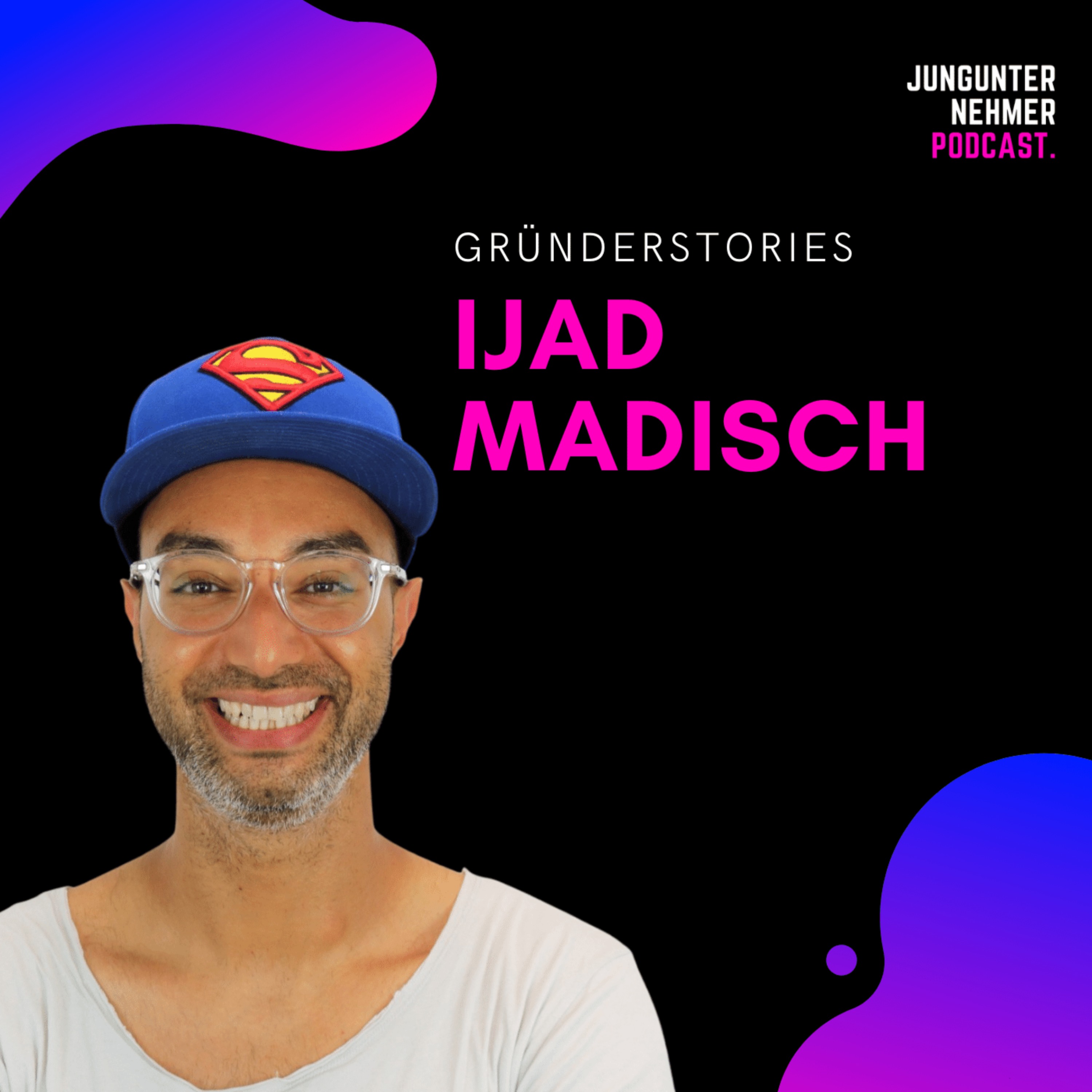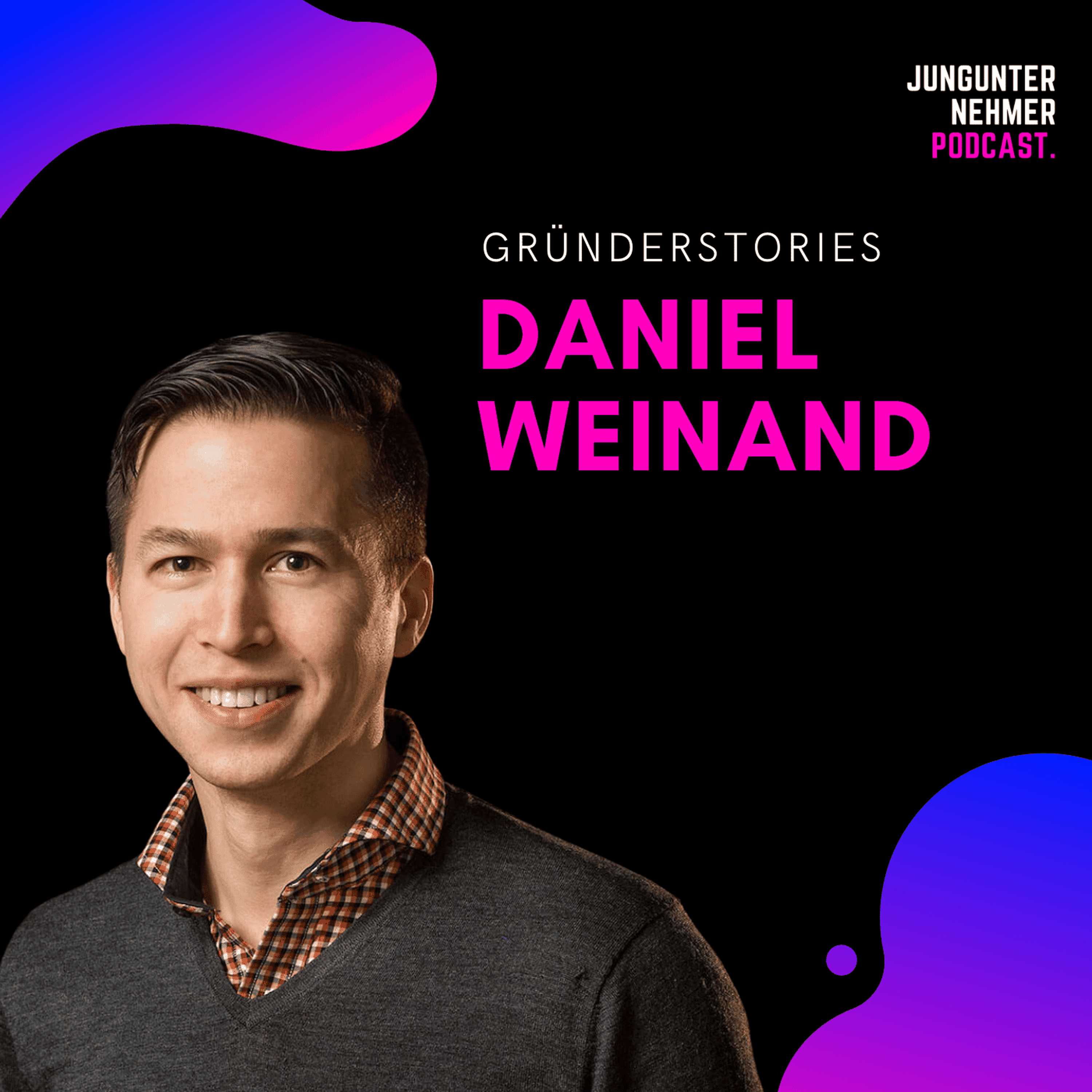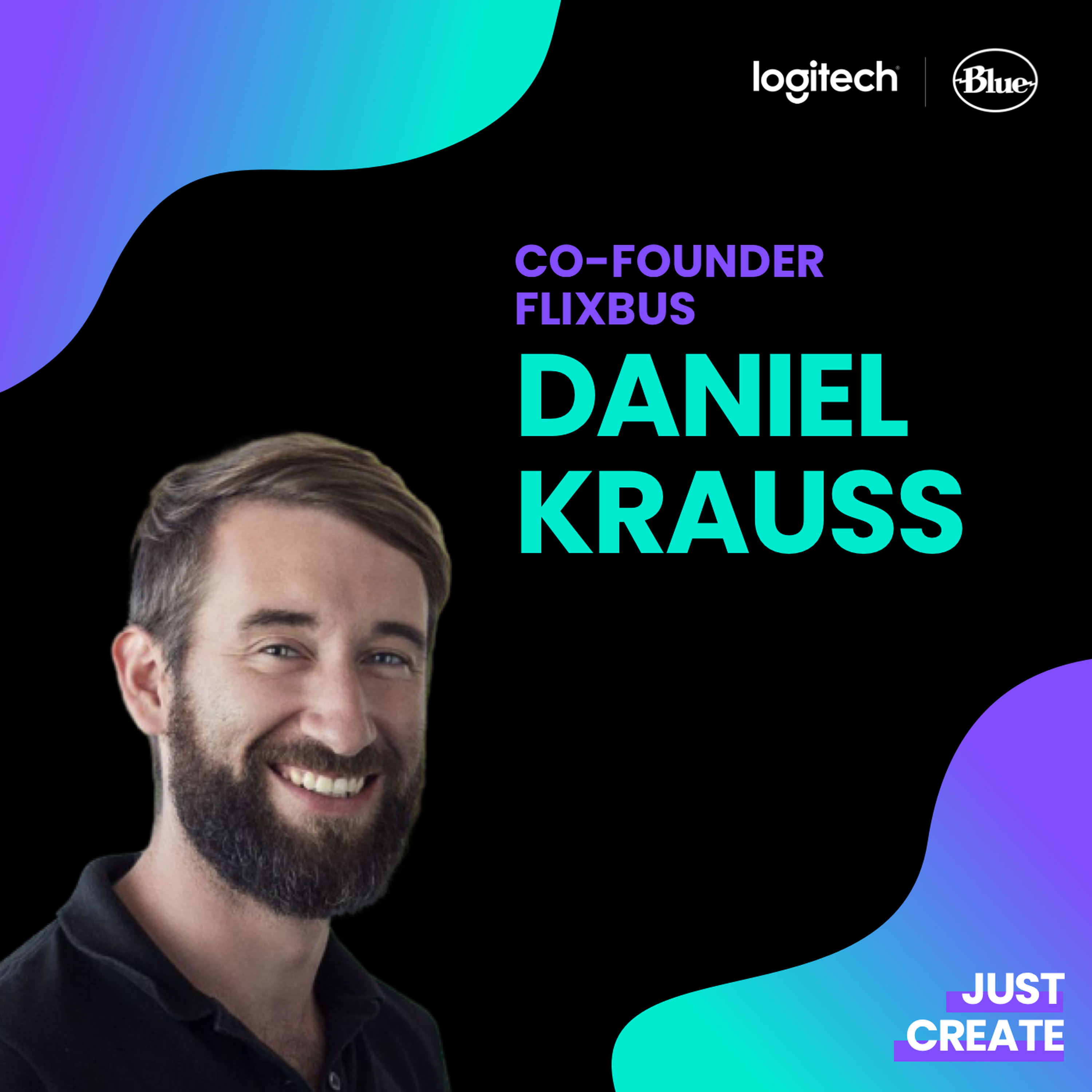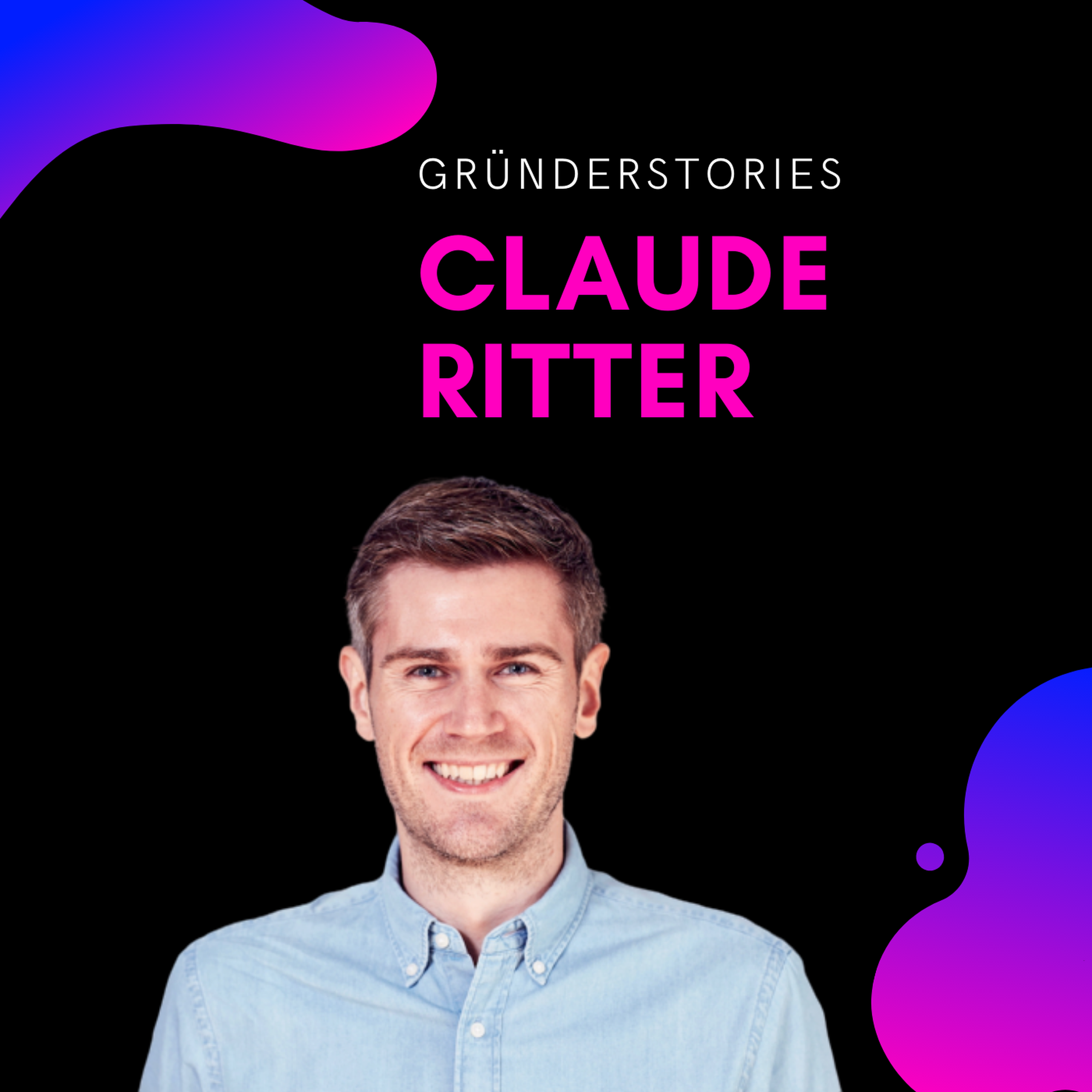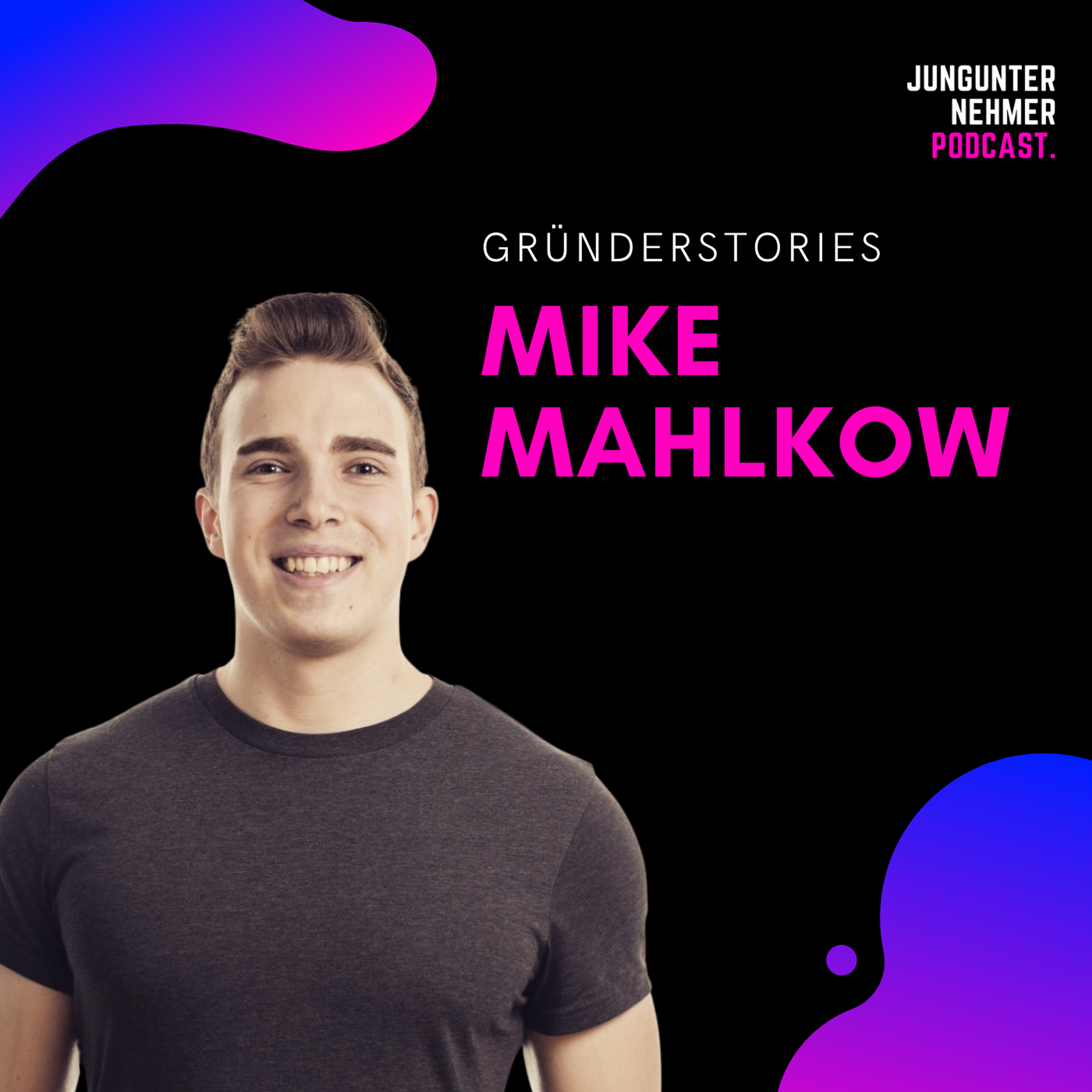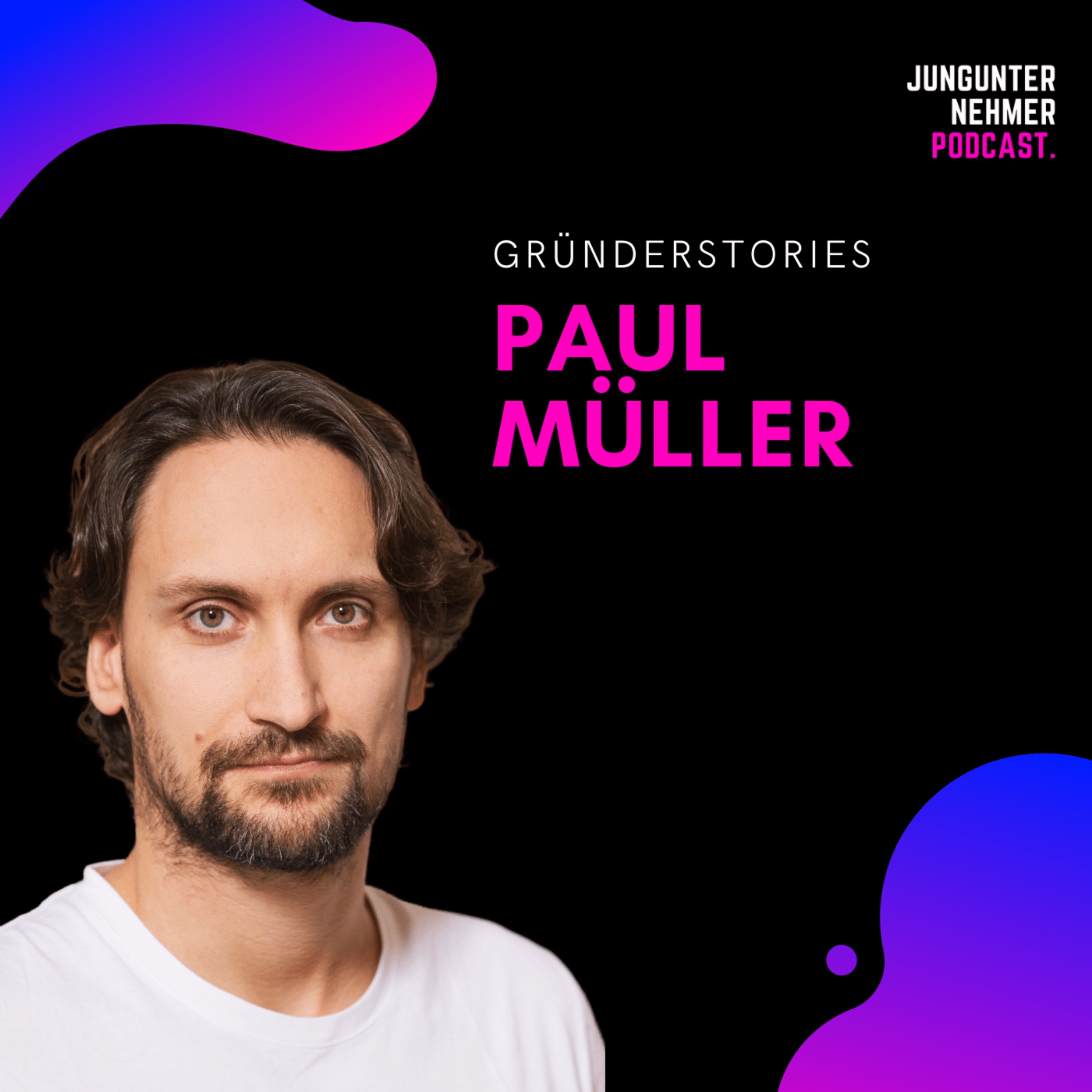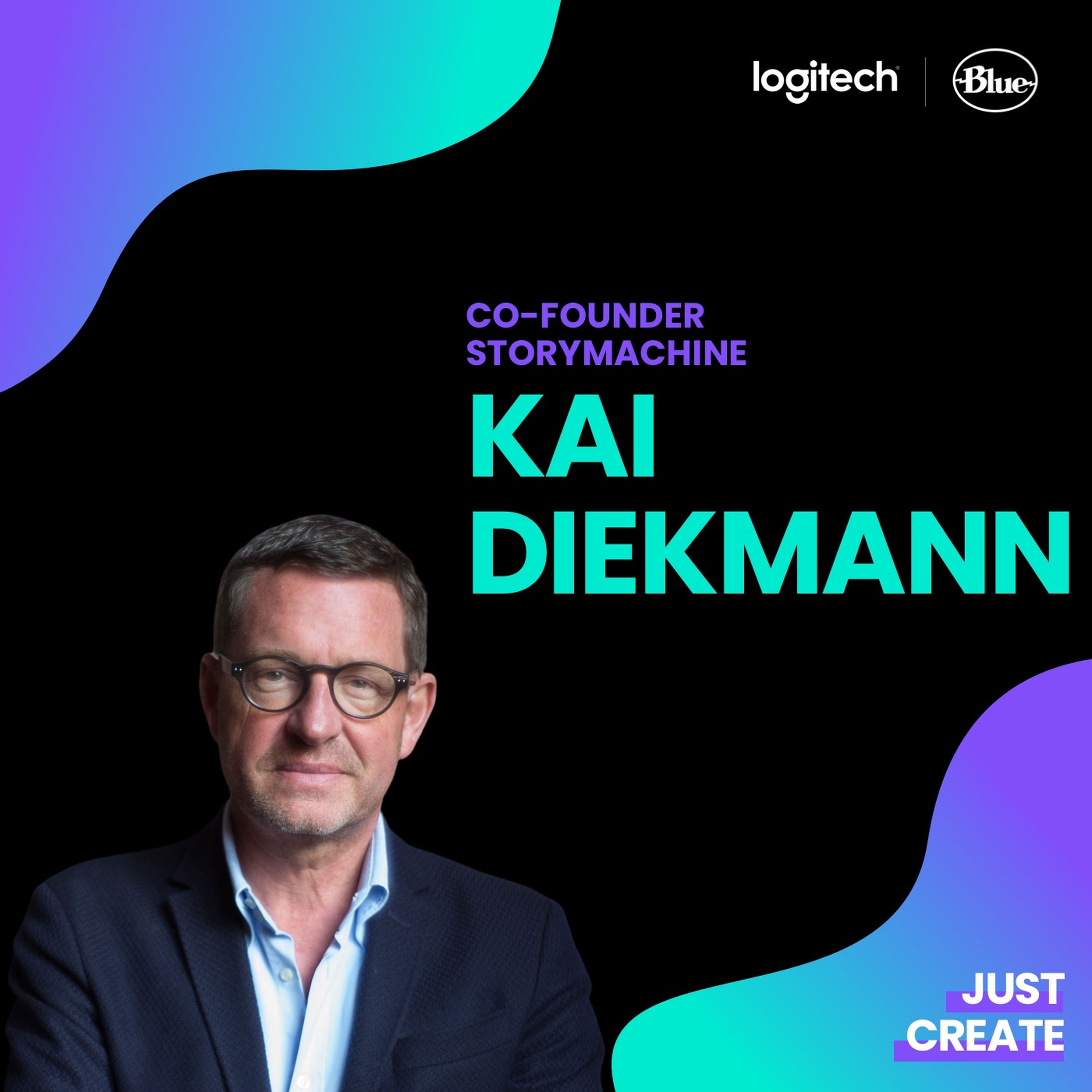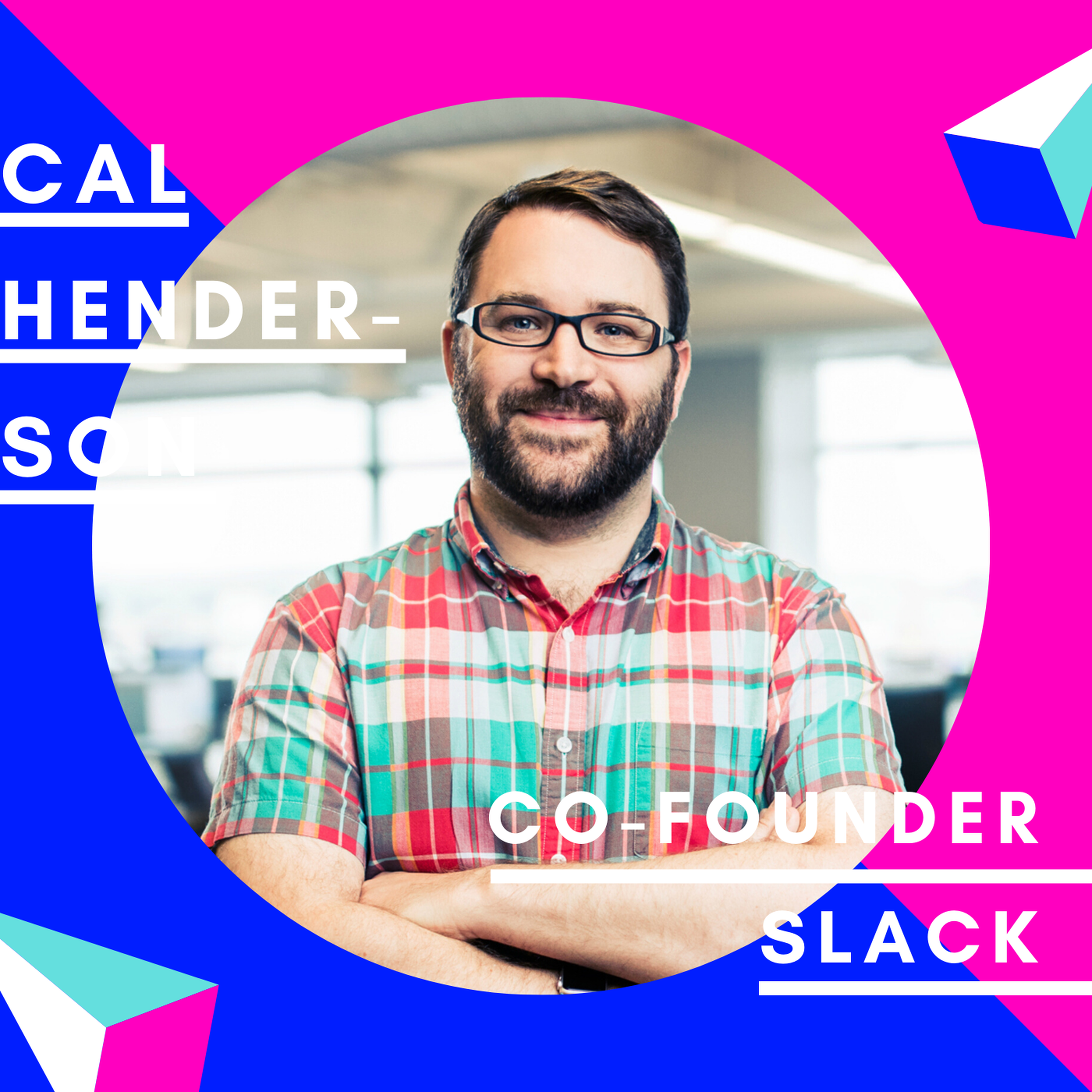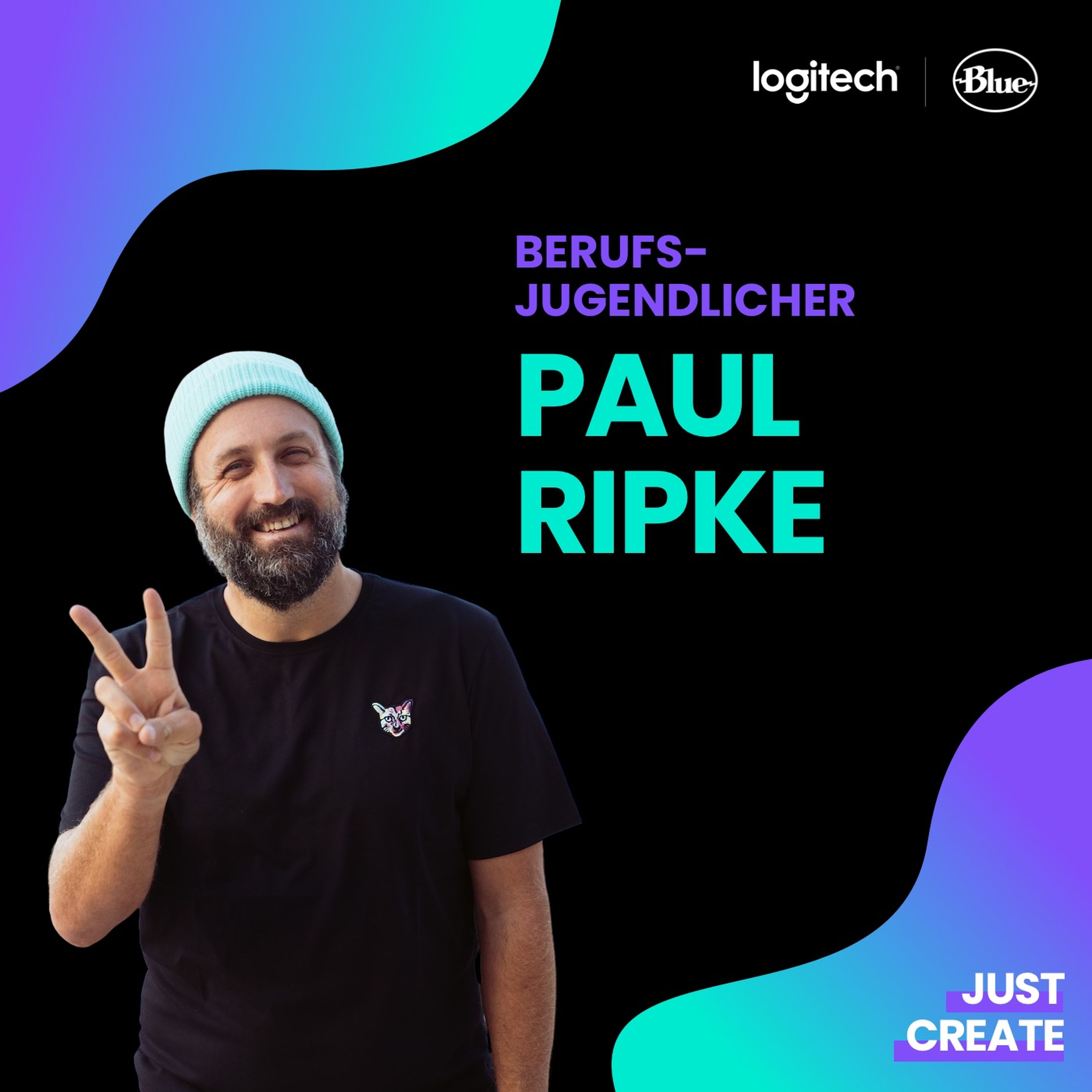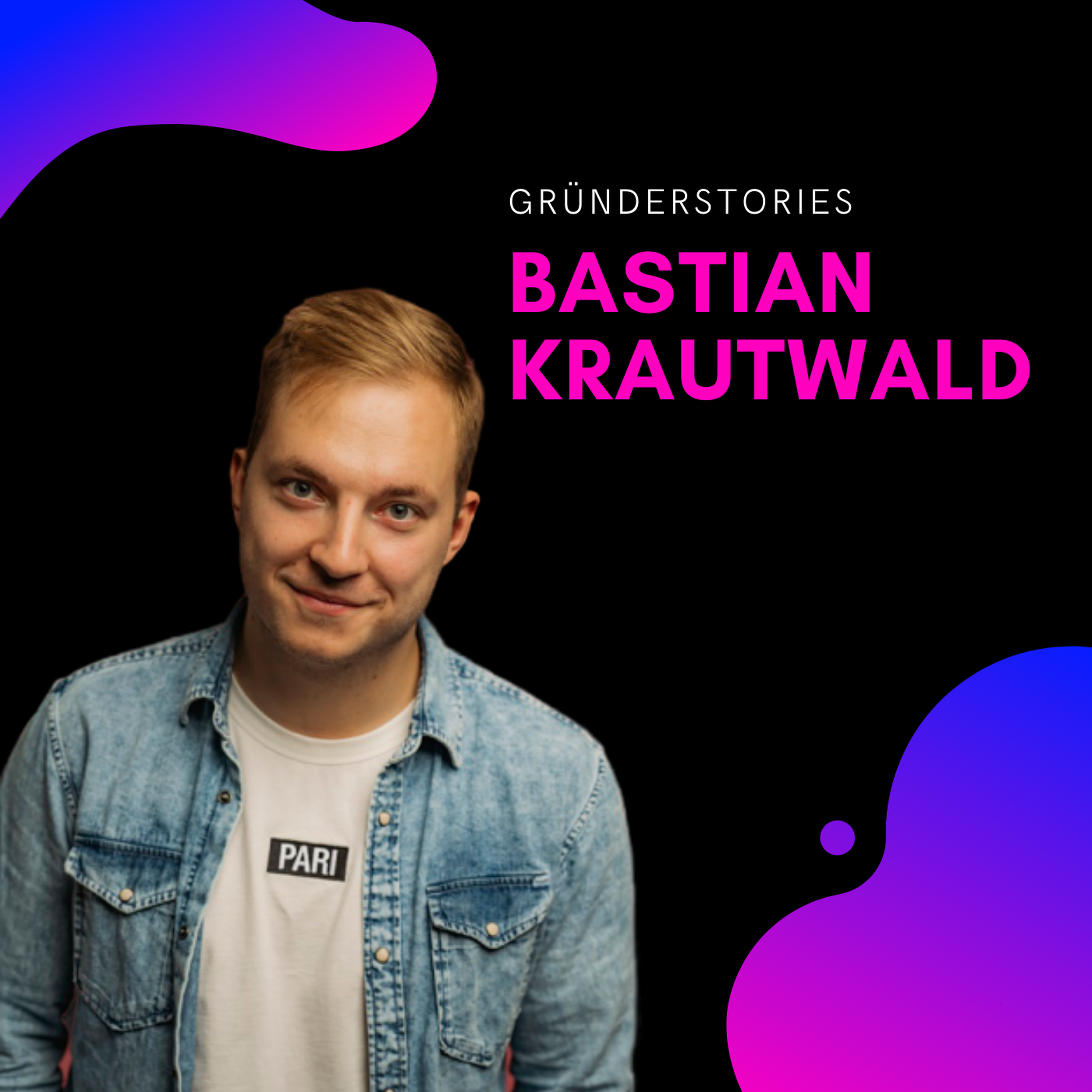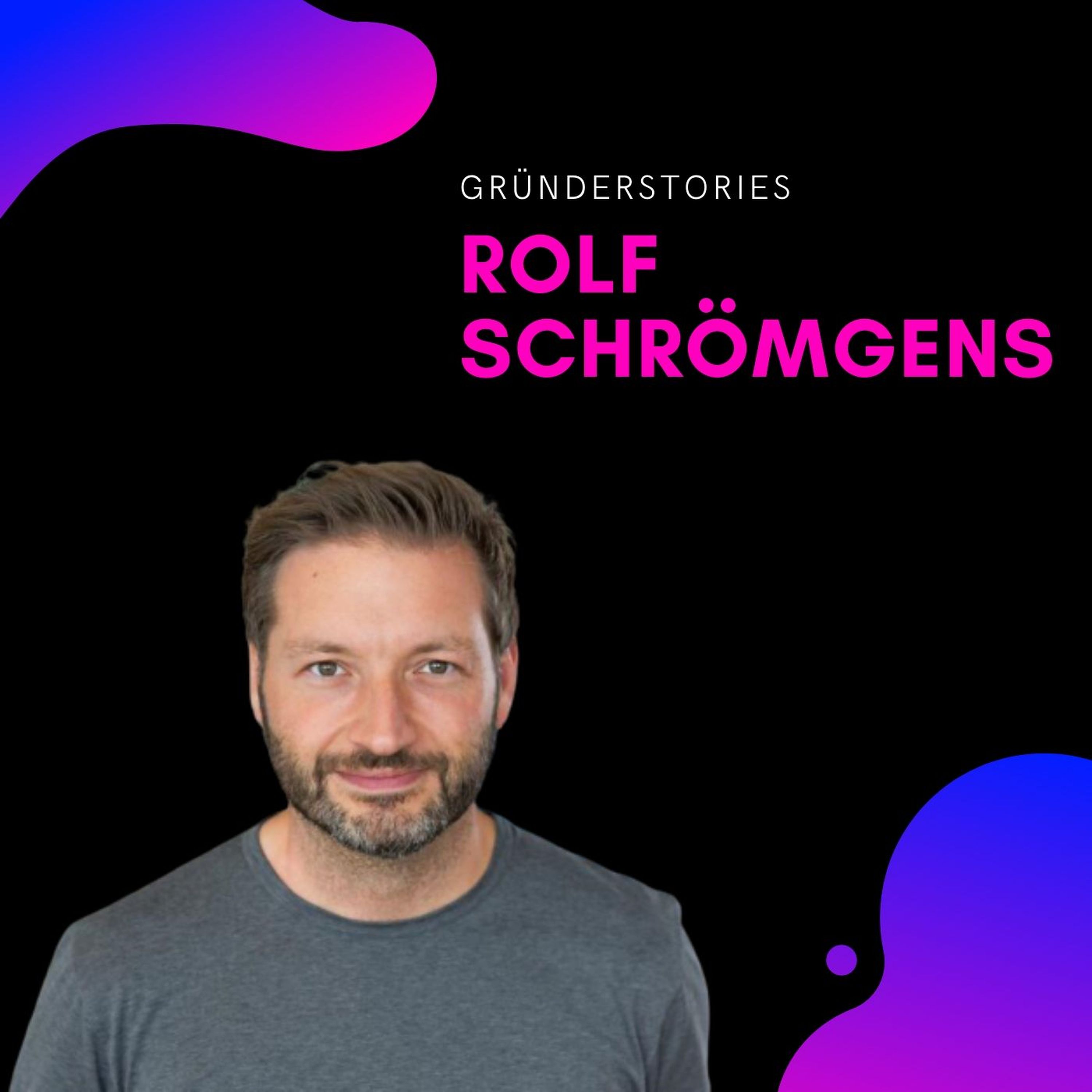Misconceptions of first-time founders: How to avoid Hiring-Red Flags & the Biggest Fallacies about Finding Product Market Fit - Dan Siroker, Limitless
Dan Siroker baute Optimizely zu mehr als 120 Millionen ARR auf, bevor er das Unternehmen verließ. Das Unternehmen wurde verkauft und fusioniert, und startete dann, rewind.ai- heute limitless.ai, ein Verbraucherprodukt, welches, anders als Dans bisherige Firma, eine Software und Hardware Komponente hat.
Dan gibt tiefe Einblicke in den Übergang von Software- zu Hardware-Entwicklung und die Nutzung von KI in modernen Startups. Er erklärt, wie Empathie und Nutzerforschung den Produktentwicklungsprozess verbessern können und welche Strategien er beim Aufbau eines effizienten Teams anwendet. Darüber hinaus teilt er seine Erfahrungen beim Fundraising und gibt Tipps zur Auswahl der richtigen Investoren.
Außerdem erfährst du, wie du die größten Red Flags im Hiring-Prozess identifizierst und dir so Ärger und Geld ersparst. Grundsätzlich teilt Dan viele Dinge, die er inzwischen als Seriengründer anders betrachtet: Wie findest du den richtigen Investor? Welche Fehler lauern im Fundraising? & Welches Gründer-Missverständnis basiert schlicht und einfach auf Bullshit?
Was du lernst:
- Die Herausforderungen und Chancen beim Übergang von Software zu Hardware
- Wie KI als Superkraft genutzt werden kann, um die Produktivität zu steigern
- Die Bedeutung von Empathie und Nutzerforschung in der Produktentwicklung
- Strategien zur Vermeidung von klassischen Hiring-Fehlern
- Wie man Investoren gewinnt und die richtigen Partner auswählt
- Was du von einem dreifach Vater und zweifach Gründer für dein Energiemanagement lernen kannst
ALLES ZU UNICORN BAKERY: https://zez.am/unicornbakery
Dan Siroker: https://www.linkedin.com/in/dsiroker/
Limitless: https://www.limitless.ai/
Optimizely: https://www.optimizely.com/
Unicorn Bakery WhatsApp Broadcast: Hier erfährst du alles, was du als Gründer wissen musst: https://drp.li/jrq5S
Unser WhatsApp Broadcast hält dich mit Einblicken in die Szene, News und Top-Inhalten auf dem Laufenden.
Marker:
(00:00:00) Company Building in the era of AI
(00:06:35) What do you use GPT4 for, and what about old habits that block us from using new tools like AI?
(00:10:48) Building the founding team - what people are you looking for and how is your leadership-style?
(00:19:59) How to do Backchannel References?
(00:23:36) How do you find out if former founders are recruitable?
(00:26:45) How do you describe the journey of Limitless to Product-Market-Fit?
(00:32:13) What are the biggest fallacies about finding PMF?
(00:35:01) Round Sizing: How do you evaluate how much money you want/need from investors?
(00:39:22) Why founders need to have empathy for investors
(00:45:47) How do you know if the investor you are talking to is the right investor for you?
(00:49:45) What unusual decision did you make in your fundraising?
(00:53:30) How do you think about burn management?
(00:56:16) To what extent can you test your hardware for product market fit?
(01:01:03) How do you think about energy management now as a 3-times-dad and a 2nd time founder?
(01:06:02) What is one of the biggest misconceptions that founders have?
Dan Ziroka built, optimistically, to more than 120 million in ARR before he left the company,
the company was sold and merged, and then he started to build Rewind.ai, now it's called
Limitless.ai, and he did a few things amazingly well. One of them is, for example, fundraising,
because he fundraised for his last round publicly. He posted a video on Axe, on LinkedIn,
and it went viral, and a lot of funds were interested. He closed his round, he has
peak of the investor ecosystem invested, and it's interesting because he did a few things
completely different than it optimistically. He counts as one of the most interesting and
well-known founders in the US, and he's very outspoken on what he made as mistakes,
is a first-time founder, and what he's focusing on now, and what he would recommend
first-time founders compared to what he now does as a serial founder, what he thinks are obvious
mistakes to avoid. That's why I would love to let Dan in on the unicorn bakery and talk about
everything he does right now, completely differently in Limitless.ai, where he's also
building hardware, not only software, not only enterprise like Optimizely was in the end,
or mid-market enterprise software as a service. Now he's building a consumer product, he's building
a hardware device, and honestly, it's exciting to hear something different than the typical
B2B-style stories to learn from. Without further ado, my name is Fabian Tausch,
you're listening to the unicorn bakery, and here is Dan Siroka.
Thank you for having me. Thank you for such a kind introduction.
For the first question, I think the biggest issue that I see or the biggest concern that I would
have if I were you was, hey, I built software for such a long time on the one hand B2B, and then
now I'm going into B2C when we looked at Rewind but also Limitless, and now you're launching a
hardware product. How do you stay confident with saying, okay, that's something completely freaking
new, I will figure it out, and even my experience from Optimizely helps with company building,
but it's not like I'm building the same same but different.
Yeah, hardware is hardware. Hardware is hard. It's definitely something that I've been told many
times to be wary of the challenges, especially as a software guy coming into hardware,
and then there's a lot of truth to that old saying, but at the end of the day,
the decision to do hardware really came from our vision. We have this idea around helping humans
overcome our biological limitations and freeing the human mind of those limitations, and in order
to do that, we want to capture more of your day. That data, what you say, what you hear is super
valuable to be able to go back and ask an AI anything about it, to be proactive. If you wanted
an AI to help you draft communications and email, a thank you note, being able to know what you've
said, what you've heard in the past is super helpful. We as humans tend to forget 90% of what
happens after a week, and that's not just Zoom meetings, although we might forget Zoom meetings
more often. We also very often forget the interactions we have day to day, so it really
came from this desire to solve a problem, not the other way around. I think a lot of companies
get into trouble when it's technology and search for a problem. We really started with this problem
and realized, wow, an Apple Watch can't do it, an iPhone can't do it, so we've got to build our
own stuff to capture this vision we want, to comprehensively capture everything you've seen,
said, or heard. One of the things that differs is the era as well. You're building in a completely
new era. We will dive later into learnings and what you do differently from a first-time founder
to a second-time founder perspective, because I think that's super relevant, and you're quite
outspoken on that, but the same question also goes for, okay, you're building in a new era,
you have, you're building an AI tool, but there are many AI tools already. What are the biggest
differences in building a company with the possibility of leveraging AI?
Yeah, today AI is a superpower. It gives you leverage, so basically any job you do,
you can now do better with AI. I think there's a lot of fear that AI will take jobs away,
and that is well-founded, but for every job it takes away, it will also give existing work and
existing jobs more leverage. A good example is co-pilot. When you're writing code and you have
co-pilot to help you along, you avoid doing a lot of the busy boilerplate work. A lot of the stuff,
like integrating with third-party services, is just easier with a tool that basically autocompletes
what you're about to write as you're writing it. That's true also of data analysis. Now,
instead of going through and analyzing, if you have, if you do market research or survey,
instead of going through manually tagging the things that somebody responds to a question,
you just ask GPT-4. Here's the, here's the response, summarize it. These are two things I
actually just did in the last week. I used to co-pilot, I used GPT-4. So both those things
give you leverage, just more work, more impact for the unit of time. So I think that's true
of all work. And then as a team, one of the things that I think is very true is that,
you know, small nimble teams can get a lot more done than compared to teams of hundreds.
This is definitely an experience I had in optimizing. We had about 450 people and, you know,
I thought we were moving fast. And it wasn't until this company, when we have 20 people,
and 20 people enabled with AI who are tightly aligned, you know, the communication cost of 20
people, the, you know, the pairwise number of connections between those people, far greater
than that of a team of hundreds, you're able to do so much more. So I do think the future looks
very much like a bunch of small companies being very nimble and quick. And I think that
they'll select for those will be successful. And, you know, what we thought of as a traditional
successful company being in thousands or tens of thousands would be, will seem crazy in the future.
So when you use chat GPT, for example, in GPT-4, what are your, the topics that you use the most
for? Because everybody talks about using it. But I think sometimes it's easier to understand
out of the box cases and thinking, oh, true, I could use it for that when you hear from other people.
Yeah, I think one that I just used it for was data analysis. We did a survey asking about
limitless and about some of the different choices we have around privacy. And using a tool called
SurveyMonkey, you can do a paid panel. You can literally pay people to fill out your survey.
SurveyMonkey does a good job of getting you a representative sample of people throughout, you
know, the United States or even internationally. And the challenge that is you get a bunch of data
and a bunch of qualitative responses, not just quantitative responses. So GPT-4 is fantastic
at that. You either can put in the CSV file of the survey itself or just copy the responses in
manually. And you ask it to summarize it, you can then ask follow-up questions, which is really
powerful. You can ask for a summary and then you ask it, hey, like, is it, what about this?
Is this a concern people had? And they will tell you, no, nobody brought up this concern or
three people brought it up, but, you know, here's another way to consider it. So I think
in that case, you actually think of it more as a thought partner than as a tool. It's a way for
you to kind of go back and forth with somebody who, you know, who will work without, without pay and
and without complaining and will work any time of the day. So that I think is really powerful.
So it's, I think you're right, though, that in the premise of your question that most people
don't know how to use AI because it's so new. It's, I think it's one of those things that,
you know, we look back at like 1996 in the internet, you know, the idea that like the
internet could be how you buy things or that the internet is how you communicate or connect with
friends or, or share family photos, like all those ideas or like would have been really hard to imagine
before products that actually brought those ideas to life existed and became popular.
So I think we're in a similar stage now with this new wave of generative AI, where there's all kinds
of use cases that the AI can power. But, you know, the limiting factor is our imagination,
not the technology's ability to deliver on our imagination.
I think it's also about breaking habits. When I observe myself, often when I could use
chat GPT or any other AI tool that for a certain use case, often my default is to go to the tools
that I used before. So I have to force myself sometimes to think about, okay, open this app
instead or this AI tool instead of the typical app to then also get myself going and think about,
oh, how would I solve this task? And why might it be faster or better or both when I, when I use it?
It's interesting to you have that I have to trick my mind to, to get going and use it more often.
Yeah, it's very true. I mean, I, there are many times where I default to googling something.
And actually the only times now when I do that, that I end up with chat GPT is my,
where I got the solution is if I'm failing, you know, I'm googling some more cane programming
syntax or integration. And I just can't get what I want. And that now has happened more often
than I used to. And so that's where chat GPT really can help you, especially if you give it
enough context. I think that's some mistake people often make is that they, they use chat GPT like
they use Google, they give you like two or three terse words. They don't give the full context
because actually, you know, Google kind of fails when you give it a huge long bunch of sentences,
it's just trying to match keywords. Chat GPT is the opposite. The more context you give it,
the more likely it is going to give you what you want as a response, but habits are hard to break.
You know, I, I vaguely remember back when I was using Alta Vista and Google came around,
like even switching from Alta Vista to Google in the early days, and Google was getting better
and better in the early days, it wasn't, you know, clear, you know, in one search, you'd get better
results. But I think that's, that's the change happening today. People have replaced Google
with perplexity. I think that's a much easier on ramp because it's a very similar use case. You
just type in what you would otherwise type into Google, you now type into perplexity and you get
a much better response. Yeah, since I recorded a podcast with Richard Socher, I am using u.com,
but still, I, one of the things I did, I have the new iPhone and you have this shortcut button,
and I, if you hold it long enough, I just put in by now u.com before it was Chat GPT as a voice chat,
and I think also those small mini functions and shortcuts make it easier to, to implement in
your day to day. That's right. The less the friction, the more likely you can adopt the change.
I think we talked about personal productivity here, but from a team perspective, what are the
things how you use as a team and tools of AI to then also make, I'm not even sure, like in a
smaller team, you try not to have too much process, but I think you know what I mean when I say
make process more efficient. Yeah. Well, I certainly, well, we as a team use Slack as our main
means of communication. Rarely do we email each other, and Slack recently launched several AI
features that, that I think are pretty compelling. Being able to catch up on, get a recap on a thread,
you know, there's probably some threads like for us, our customer support thread,
we get lots of customer support emails, people asking questions, and for me at a glance,
we'll just get a summary of what everyone has been asking over the last day has been really
helpful. So that's another use case for AI. From a process perspective, we don't actually use a
ton of AI. We do have a very clear sort of async approach to how we work. We use status hero to
sort of give daily updates asynchronously. So instead of getting together in a meeting and
everyone stands and talks about what they're up to or the blocked on, we can do that asynchronously
ahead of time. And we do product reviews. So over Zoom, one Monday, Wednesday, and Friday,
an engineer will demo what they've been working on, they'll get feedback, we'll get a great chance
for us to sort of get aligned on the open and biggest questions to unblock them and to create
clarity. So that's kind of our process. We try not to overdo it. But when you're remote first,
I do think, you know, it's important to have those touch points where you're at least aligning,
concordinating synchronously, not just doing everything over Slack.
I think, especially in the early days, it's not only about like process and personal
productivity is also about picking the right people to work with. And you mentioned, you know,
you built a quite large team with Optimize Lee and then moved on to build something new. And
now you're, how many people are you by now? I think it was 20ish.
Yeah, yeah, 20 people, 20 people. And therefore you have to pick quite specifically what are you
looking for. And in especially Europe, I often hear, hey, you hire as senior as possible, try to
and then you often end up hiring very niche specialists, for example. So from my second
time founder perspective on how you picked your first few founding team members,
what were you looking for? Yeah, for, for me, I was lucky in this company where I had had a first
startup with a large team. So the first few team members I picked were like the best people I'd
previously worked with at my last company on Optimize Lee. So that was a bit of a hack. If you
don't have that luxury of having a prior company where you could sort of cherry pick the best people,
I actually have come to the opinion that especially as a small team, it's much better to hire
experienced people who are generalists, not experienced people who are specialists like
you said, but experienced people oftentimes former founders are a really good mold for this.
Somebody who maybe he's tried being a founder, obviously he did not work out in some form or
fashion because they're not, they're not Mark Zuckerberg. But they found that like they still
want to be part of a startup, they want to learn, they want to be part of a team, they want to have
ownership and autonomy. So that that kind of a person has has just really thrived in our environment
in part because we just have a culture of a lot of ownership autonomy. We really want people to
have high agency to try to see a problem from the very inkling very beginning of the idea all
the way through the completion. So I do think generally my approach has changed at Optimize.
I just couldn't hire those people. My first company, you know, I was young, I was an experienced,
I don't think people would have worked for me if they if they had been super experienced,
certainly not the very early days when we were pre product market fed. So if you can, I wouldn't
hire for the, you know, I do think that that the specialization is a trap. Because what happens if
you over specialize too soon, is you become very rigid, you might have experts at any, you know,
you might have an expert back end person, expert front end person, expert, you know, it's, you
know, AI person. But what you miss is somebody's ability to go broad, sort of take something,
you know, in the end of having these bottlenecks, you end up saying, oh, I'll just pass off the
back end person. And that creates more of a, you know, assembly line factory style of work,
as opposed to, which might work, you know, 200 300 people, but at 20 people, you really want
the ability for everyone to kind of own end to end their work, and feel a sense of ownership
over that. I think that's really important. I think for assembling the best team, it also
requires a lot of self reflection on your personal type of like how you like to work,
but also how what kind of leader you are. So give us a bit of the introspection
when I would work with you, like what, how is your leadership style? How would you describe it?
Yeah, my leadership style has evolved a lot. I think if I were to describe, I'll describe my
leadership style now and the people who first started working with me 10 years ago would be
like, who is this guy? So for one, I really, and ultimately, my goal is, is winning. I want the
company to succeed. And I'm willing to do, I'm willing to do uncomfortable things to make us
succeed. And one very basic form of uncomfortable thing is being candid, just telling somebody
what you think. And it may not be that they're wrong, or you're right, or vice versa. It may be
just really trying to get to the truth. I think especially pre product market fit, the most important
thing is for the company to be truth seeking. And very often, especially early on, for first time
founders, you have a dynamic which I describe as kumbaya off a cliff. You know, it's everyone's happy,
they got locked arms, everyone feels like they're working hard and doing the right thing.
But they end up failing and they fail because nobody was, nobody was honest. Nobody was willing
to say, hold on, are we actually working on the right thing? Or hold on, is this actually the
best way to solve this problem? And so to me, that's, that's embracing candor, that's embracing
accountability, accountability in every form, including, you know, being willing to let go
people quickly if it's not a good fit. And in more importantly, you know, course correcting,
you know, I've been very impressed, especially high ownership people, their ability to take feedback
and incorporate it and get better. I would say that's kind of what my style is, is try to be very
decisive, lead from the front, get very involved. You know, I tried to, I don't ask anyone to do
anything, I wouldn't do myself. So I'm making my marketing videos on my own. I don't need a film
crew, you know, I'm in the code base contributing code and bug fixes. So, so that's, that's how
I approach the job. I would say that the thing that I've noticed that does not work, the thing that
I fail at is I'm very bad at working with people who are defensive. And it goes back to that first
point where, you know, I, I, my, my hard wiring, you know, for my childhood is not, I'm not great
at dealing with conflict, my, as my, my, my sort of childhood hard, hard wiring. And so what that,
how that comes out is if conflict emerges, which I try to drive myself, it is very hard for me.
It's like a very hard to motorless emotional experience. I know some people out there,
they actually get like, they get sort of a relief or they almost enjoy, you know, being angry. I,
I can't do that. Instead, I try to lead by, by being candid. And if the person is defensive,
that always ultimately fails. Because if they're defensive, they're not going to hear the feedback,
I would be less likely to give it. And at some point, you know, maybe a week, maybe six months
later, it doesn't work. So that's kind of been my recipe is I try to look for that in interviews
when I meet with people, okay, this is a person who's going to take feedback, or they're going to be
defensive. And if so, that, that's kind of a recipe for failure right, right off the bat.
How do you try to figure out if they are early in the hiring process? Like what questions do you
ask? Do you do it via references? Do you do it via work samples? I do lean very heavily on references.
So we do at least five references for everyone we hire. And oftentimes we will also do
not just not the ones you give us, but back channel references as well. We've had several hires that
like sale through all the interviews, everyone loved them, all of the references they gave us
were glowing. And then we did that one back channel reference. And it showed something
that we didn't see in any of the interviews. So I am a big, big believer in references.
On defensive, the defensiveness though, you can actually pick that up on interviews pretty easily.
I think the mistake people make, if they don't pick it up, is they're usually too nice. You know,
if you're too nice in an interview and you're too accommodating, you're trying to sell them,
you want to make them feel comfortable, you won't really get a sense for are they defensive or not.
And so that's I think a really important aspect to it is making sure that you are able to capture
like are they, you know, you may push them a little bit, you know, if you disagree,
point that out or you're just be, be, you know, be a little combative in a way that you can kind
of test their reaction to that. And that can also give you a quick sign of like, oh, you know,
in an interview where they're trying to do their best, they take a step back, you know,
you're right, that was a bad answer. Let me try that again. Or, you know, you get a different,
you can get a very different take from somebody. Not that I would ever tell somebody their answer
is bad. But like, I do think very quickly, if you probe somebody in an interview, you can kind
of see how do they react to feedback. So trying to also put like create situations that might
be quite similar to working together and then figuring out, okay, how do they react to those
situations?
Exactly. Yeah, try to figure out how do they react to situations and put them in that situation
in the meeting. So they end up feeling what it would feel like to, you know, for them and for
you to feel like what we would like to work together when you're at your worst.
How do you analyze if this back journal reference is valid enough to not hire somebody?
The only reason we would ever do wars if we had a reason to think this reference had an
axe to grind or that there's something personal about it, you can usually tell that by the
relationship. I mean, rarely is that true. I mean, honestly, most people just when you do a
reference call and the person's not good, they just want to get through that reference call
as quickly as possible without getting themselves in trouble because it really doesn't serve them.
You know, like, it doesn't really help them to be honest, other than like making them feel less
guilty. It only could potentially hurt them. So when you get a negative reference, you really
should pay attention. Like they're very rare, rarely do negative references in my experience
happen for any other reason than the candidate is just not a good fit. And so I do think that's
important to recognize and make sure that we don't, you know, overindex on having a reference,
you know, I actually I've made them say once or I hired somebody did great in the interviews,
had a couple red flags in my relationship with them, had one really negative back channel
reference and I ignored it. I was like, this person was being sexist. There's no way this
reference was true. And it was so brutal. Like how could but that's the other thing is when you
see a really brutal reference, where it's like really down to the specifics of how this person
is going to fail you and let you down. And you didn't see it in your interview process. Then
you think, well, am I just a horrible interviewer? Yes, you are. You are a horrible interviewer,
especially more senior people. And so that you know, I made that mistake where I ignored back
channel reference as negative. And that set the company back a year. This is my last company.
So like, I definitely think, you know, you shouldn't do the bigger mistake you'll make is to sort of
squint and ignore these negative reference points, not embrace them. So how do you
become better at interviewing? Like what are the biggest mistakes you made? Of course,
you mentioned not asking for references, for example. But what are the other biggest mistakes
that you would love to not make again? Yeah, I used to have a very formulaic interview where like,
in fact, Forbes wrote a whole article, like the top five questions the answer worker asks candidates
or whatever. Problem is, once they wrote it, then all the candidates could just Google that and get
the answers. But even more so, I realized that part of the interview is it's kind of like a dance.
You're trying to see do you fit with this person. And so now I view almost all my interviews, I
rarely have other than asking somebody their aspirations. I almost never have a prescripted
question I ask ahead of time. I have the luxury of now I interview later in the interview process.
So I try to understand from the rest of the team where their strengths and weaknesses,
where can I probe? Where can I double click? I've gotten much better at being able to probe
for contrary information. This is something I learned back in 2006 when I was at Google. I was
at APM, a social product manager at Google, they did interview training, they taught you how to
interview people. And one of the things they said, which stuck with me now for quite a while, almost
20 years, is this idea of probing for contrary information that we as humans, when you interview
somebody, you want to get and you have a preconceived, you have a notion that you've conceived,
not preconceived, but you conceived a notion like, oh, this person's like, not very technical.
You as a human being will keep trying to reinforce your own bias around, oh, they're not technical,
they're not technical. And Google's whole style is like, look, maybe you've learned that, maybe
you haven't, you have some data points on it, probe for contrary information, give them an
opportunity and shine in other areas that you haven't even brought up before. So I do that,
that's kind of my approach, is like, I try not to weigh too heavily my initial instincts.
And then I lean heavily on references. I mean, the interview, honestly, for the candidates,
the caliber candidates we're trying to hire now, I am actually just as much interviewing them as
they are interviewing me. So I am doing as best as I can to convey why they should join us, because
these are people who could easily make, you know, a gazillion dollars at opening an eye or Google
or elsewhere. So like, you know, we try to not have too arrogant of a view to interviewing where
we know that like, this person has options. So I want to make sure I spend as much time in my
interview, get convincing them that we're their top choice, as well as getting what I need to
build new references. You said you hire a lot of former founders. And I asked myself, like,
founders often want to be like the number one, want to be a bit more of the alpha and want to
run on their own often. So I think this brings a high level of ownership often at the same time.
It also can be that they're not as great as taking feedback. So how is this the process that we
describe to distinguish and differentiate between those two kinds of founders that are like, are
they ready to actually work for somebody or what are the ways that you also figure out if somebody
is also able to complement your team and often or sometimes follow your lead with the ability to
challenge your opinions and vision as well. Yeah, I mean, part of the reason I like hiring founders
is that they will challenge my opinions. That is actually what I'm looking for. I'm not looking for
just purely yes men and women who just follow orders. So that is actually something I want.
But I do think you can learn. I think the key question I ask that will help me understand,
will they be a good fit? I ask them what their aspirations are. What are their aspirations?
And if it's some version of, one day I want to start a company again, but right now what I really
want to learn is X. And if that X is something they can learn working with me, then it's a great fit
because we're aligned. We're trying to go after the same thing. And I don't expect people to want
to be working with me forever. So I know that if that's the trajectory they're on and they see very
clear, maybe it's, oh man, my last company, I really failed because I couldn't figure out
distribution. And I really want to come join you because I think you can help me figure out how
does an early stage company get distribution? And that's going to be a skill that I'll have for
the rest of my career. That's like a perfect fit because now it's a little bit of a chip on their
shoulder. It's them knowing that there's something they're missing that they could get. And at the
same time, I know what they're looking for. So I can help solve for that as well, which is also
kind of a win-win. So as you said, I think alignment around aspirations that's really important there.
Do you have a milestone in mind where you're like, okay, I would love this person to stay for that
long so that I don't have to rehire? Or because let's say a founder comes on and says after four
months, hey, I learned everything I want. I'm now building something new. And you have to get somebody
new up to speed. Like, is that something you think about? Or are you like, no, if I'm good enough,
then they will stay with me because they think they can learn from me down the road.
I don't really think about that because I ultimately would love anyone great who I've worked with.
I want them to be with me indefinitely. But I'm also realistic. I know that this may not be
the role for them. There are some people I've worked with now or at least one person I've worked
with now for almost 15 years across my two startups. So it happens. But I also think that
there's a special kind of relationship in person. Because I hire very ambitious people who often
want to go start their own company too. So you kind of have to accept that if that's what you
want, you either want ambitious people who are going to outgrow you. I'm very proud to see that
like many of the people who used to work for me at Optimize, they are now founders of successful
companies doing great, amazing things. And like that, I'm actually really proud of. So it's not
entirely bad to have them leave. But I don't have a set number of years in mind. And if they're good,
I kind of want them to stay with me indefinitely. When you're assembling the DA team for the early
stages, the main goal is product market fit. And what would you describe the limitless journey
to product market fit? Where on the journey are you? What are the things that work? The things that
didn't work? How do you think about that at the moment? Yeah, I think we've been on it in this
interesting idea maze, sort of navigating this maze of ideas to get to what we're working on today.
Where each idea from the past has helped inform the present. When we first started back in March
2020, this is before Generative AI, this is in the midst of the pandemic, we had started a product
called Scribe. It was a meeting bot that would join meetings, Zoom meetings, transcribe it, put
it up in the cloud, let you search over it. And at the time, it was actually really novel. We're
like, wow, this is cool, no one's done this. And then like every week, and you start up,
we'd be doing the same thing, because everyone's on Zoom and transcription became cheap enough
and good enough that that became valuable. But from that, we learned this interesting lesson,
people kept telling us there's a market poll. We kept hearing this market poll
that they like meetings, but they would really love to capture more of their day,
not just the things they say and hear in meetings. But every memory, people realize very quickly,
that they don't remember nearly as much as they'd think 90% of memories have gone after a week.
So that's what inspired us to explore, what if we actually captured your screen? What if you
captured the things you see? And that combined with the enabling technology of Apple Silicon,
M1 chips had just come out, made it possible to build Rewind. So Rewind was kind of our first pivot.
That's where we said, okay, let's embrace this idea of capturing more about your day.
Let's do it in a very privacy-sensitive way so people are comfortable. And that took off. So then
we got, I would say we got sort of ratcheted up. The first, I would say actually we even described,
we had early semblance of the product market fit. I mean, even when we stopped,
we actually left the scribe running, but we didn't invest in it. It kept growing to tens of thousands
of users without us doing anything. And then I think Rewind built a huge movement, hundreds of
thousands of people signed up on the wait list. And now with limitless, it's still too early to say
we just launched a month or two ago. But we've got a lot of people excited about it. They see the
potential of now this third iteration of everything you've seen, said, or heard, but across all your
devices, not just on your Mac. And that's been really exciting. And of course, leveraging the
best AI models has also been really exciting. So I would say we've got some early, strong signs.
It's not like the definitive slam dunk, let's pour on gas and scale, scale, scale. I think we're
still a little bit away from that. But we're seeing the early market signs that what we're
building is something people want. How do you define if you want to invest more in the thing
that you are already building or iterate and pivot as well? How do you make this decision?
I think it's really a hard decision. I'll just offer a couple of pieces of advice. One,
when you pivot, it should feel like coming home. I know that feels very qualitative, but there's
a certain sense to it as it feels like this is right. That we're coming to a place that feels
more in my wheelhouse, more what I know, more familiar. It shouldn't feel foreign. If it feels
foreign, then maybe you're going the wrong direction. The second is things that work,
tend to work really fast. There is some truth to it. Sometimes you just got to grind it out
and iterate, but in general, statistically speaking, most good ideas, you start seeing very
early on whether it's a good idea or not. So if you're not seeing any semblance of success,
it doesn't have to be top up into the right revenue growth. It could be really deep user
engagement with one small niche. Wow, these moms in the Midwest really love this product called
Pinterest. That's where Pinterest actually really started and grew. They started with a small group
of people who insanely loved it. Then you know that you're onto something, but you shouldn't
fall victim to this idea that, oh, well, every company is hard, so I'm just going to keep grinding
it out. It would be so embarrassing to admit to my friends and family that the thing I started with
wasn't the best idea after all. You're more likely to make that mistake, especially if you're worried
about how you might look to others. You need an irrational self-confidence, maybe an delusional
self-confidence to tell yourself, okay, I'm going to try something new and it'll be even better than
the thing that was working before. So how you described it, scribe and rewind, had those first
trajectory of people picking it up and using it. So why bother and pivot and not focus on them?
Yeah, I mean, I think it actually is, we could have stayed focused on it. It would have been
fine. Like it's really not a question of would it have succeeded or not. I actually think it's
even scribe. Had we not pivoted, it would have been fine. So it's really a question we're solving
for. I'm not solving for it would be fine. I'm solving for massive impacts of billions of people
on this planet. So I have a higher bar. You know, I think if you're looking for a business that's
going to pay your bills and you have nice vacations, don't pivot from something that's working.
I'm not, you know, I'm not, that's not my goal. I'm trying to build something that I think there's
a, there's an idea behind what we're trying to do that is really, really powerful and the right
foundation for that idea could be massive. So that's what, that's just my goal. And with that
goal function, you know, the criteria for success for even the beginning of this, the idea changes.
You know, it's not something that's just like, you know, a nice to have sort of, oh yeah,
this is a cool tool. I really want to build a painkiller. I want to build a product people use
every day that find tremendous value in. They tell their friends about it. It's, it's something
that they can't not use. You know, it's somebody who says, oh yeah, change management is hard,
but boy, once I try this product, I couldn't go back. You know, those things are the things I'm
looking for. So what would you say are the biggest fantasies about finding product market fit?
I think, I think actually one, one framework that would be helpful, I think a fallacy is that
it's binary, that you either have it or you don't. I do think that it's true that it's more of
a gradual journey. Like when you really have it, then you know, like you will know when you're at
the pinnacle of what it feels like to have product market fit. And there's all these articles,
my market recent wrote a blog post, you know, it'll be, yeah, you're able to build it as quickly as
people are buying it, your servers are melting down. But there's also, but if you hold yourself to
just that bar, you will make the mistake of not seeing the signs of success along the way.
So I do think that's one fallacy is that it's like, it's either you'll have it completely or
you don't, I do think you can build up to it. And actually, first round capital, one of our investors
recently came out with a really great framework around this kind of the four stages of product
market fit. So I encourage you to read that. I think that's a really good, very smart, very well
researched approach to product market fit. They also released a product market fit track, right,
where you take on like 20 companies or something and friends of mine are taking part.
Oh, great. Yeah, I am a huge fan of first round capital. I highly recommend it. If you can get
into that track, do it. If you can get money from first round, do it. They have been absolutely
fantastic partners. So this is just one of many examples of the things they've done that has been
helpful is really helping educate the market around product market fit. The other thing I'll
say about product market fit is that I do think sometimes, especially a very engineer minded founders,
make the mistake of thinking the product market fit is 90% product. It's also market, you know,
you have to get distribution and getting product market fit. You know, there's many companies
that have a cool idea and a cool technology, but haven't figured out distribution and I think you
need to do them both equally. It's important. It's not just about is the cool product and certainly
customers don't care about the sophistication or technology. So that does not matter. What they
care about is having their problem solved. But even if you solve a problem for customers and
they love it, it's hard to get product market fit if you haven't figured distribution out.
Yeah, I think often enough, and I see this as well, it's more about like often people try to
explain to themselves that they have product market fit and try to trick themselves into,
hey, we're already there. Instead of taking the step back and being like very open and
to say, hey, probably we need to refine on the market side on the product side to feel this
pull even more. And this then creates the scaling too fast, too early,
something that's not there yet moment, which then is quite able to kill companies quickly.
Yeah, yeah, that's very true. And I do think you have to be thoughtful. I mean, I also think it's
hard because you need to be thoughtful of that. And you also need kind of irrational confidence.
So you need to kind of the cognitive dissonance of like being willing to face reality, but at
the same time, I have a core belief in what you're working on is working. So I can see both sides of
that. From a, as we're in the early stages of building a company right now, what we're talking
about, one of the topics is also how much money do I get take to what terms? How do you approach
evaluating how much money you want or need from investors to make it a funding round?
Yeah, I think often the conventional wisdom here is figure out how much money you need,
make a budget, make a plan, and then work backwards from that to how much you should raise.
That probably works. I tend to approach it a little differently, which is I look at
raising money as an opportunity to put capital into the company in exchange for equity. And if
it's at the right valuation for what I feel like is the fair value of the company, that's just
exchanging kind of one set of risk for another set of risk. And so it's less about, for example,
or another way to put it, is I'd happily raise a ton of money and never spend it. Most founders
wouldn't say that. They're like, why would you raise the money if you're never going to spend it?
But I do think you can't predict the future. It's never going to always be up and to the right.
If you can put money into the bank, that money you can keep for lots of options,
including being opportunistic and acquiring the company, including any number of things that maybe
you didn't have in your original budget. And so that's how I view it, is I look at, okay,
where are we at as a company? Does the market think we are valuable at a stage for us where
we're willing to invest in, take the capital on? And as long as the dilution is relatively low,
that's something that I've really focused on. I think if a lot of founders make the mistake of
sort of every round they raise, they sell 20% or 25%. I always aim for about 10%. I never
maybe a little bit more if you want to give parades to existing investors. But as long as
you're not raising a ton of capital or as long as you're selling a ton of your company every time,
then I don't think there's much harm in being opportunistic and raising money,
even if it doesn't strictly have a use for it the day you raise it.
You said as long as you're not selling too much of your company time by time,
how do you approach that part? How do you think about diluting in a funding round?
I just aim for 10%. Maybe I get it, maybe I don't. But if the market doesn't think you're worth
enough or if the money you need is greater than what the market thinks you're worth times 0.1,
then maybe you have to sell more. But I think generally if the market thinks you're worth a
certain amount of money, if the market thinks you're worth $20 million, then raise $2 million
and make it work until you've used the $2 million to prove that the market thinks you're worth $100
million and then raise $10 million and then use that money and best you can to try to prove
that you're worth a billion dollars and then raise $100 million. So I think that's just generally
the mindset I have. I also am probably very conservative in terms of runway. We haven't
even started, like today is June 2024. We raised our Series A in April of last year. We haven't
even started spending our Series A. So I would much rather have three years of runway. I operate
better as a founder, as a leader, knowing that we've got plenty of cash in the bank. I'm able to
make longer-term investments. Then I think if you just said, oh my gosh, we only have a year of runway
left, that would be, I think I've done that. It's not, you end up making very short-term bets,
which ultimately lead to suboptimal decisions. I'm very sure that a few founders are listening
right now and are like, hey, that's cool to aim for 10%, but I talked to this fund and that fund
and this fund, and they want 12%, 14%, whatever. How do you make that work?
You just say no. If they want to invest, they will find a way. I have, even the most story,
venture capitalists, even before I had any semblance of success as a founder,
it's just a negotiation. When they say, ownership targets, they all have flexibility. Not a single
fund I've ever met in my entire life. They tell their LPs, we have an ownership target of this
pretend. That's their goal. That's what they've committed is their goal. If an LP goes to them
and says, hey, how come you didn't get into the hot company that's doing so well? The investors
said, oh, sorry, I couldn't get the ownership we wanted. The LP is going to be pissed. At the end
of the day, they want to get into the right companies. The fact that they say that they have
a hard criteria around ownership percentage, I don't think it's true. You might decide,
you want to give them more ownership. There are some very rational reasons to do that,
in particular, if there's a partner at that firm who you really like and you want to work very
closely with, certainly the more they own of your company, the more involved they will be,
the more invested they are. You can choose to do it, but don't do it because they're forcing you.
Do it because you choose to give them more ownership.
Yeah, I think understanding that this is a negotiation. I think you also have to be
willing to stand up if it doesn't work for the terms that you want to set out.
I think that's something that some founders, or often founders, don't have the, let's say,
luxury of because they often think, oh, either I get this fund or none. I think that's often
a mindset that you have. Fundraising is often talking to 100 funds and it's getting one.
Yes. I think that's one of the harder parts to think about, but also then figuring out
is just the right partner or not. But I'm not sure if it's a mindset thing or if it's a opportunity
thing to say, okay, I could raise from A, B or C and whoever meets my terms, actually, I go with,
or if it's a mindset thing of, hey, I will find a fund that is applicable with my terms.
Yeah, I would say that no fund is worth compromising your, you know, compromising too
much delusion or too much control. Like there's some good ones, really good ones, I've worked with
the best. And I wouldn't, you know, or put differently, even the best are willing to compromise
if it means getting into your company if you're doing well. So I think that's the other thing,
too, is like, don't fundraise if you're not doing well. Like you shouldn't be out there,
even, and well is relative. You know, well for pre-seed is very different for well than seed
and well for series A and series B. But you should hold yourself accountable to, I am doing a good
job as a pre-seed company to earn my right to earn, to raise a seed. I think a lot of founders
make the mistake and play the victim of saying, well, I couldn't raise the money and like, you
know, companies, the investors just don't get my space. And like, it's because you're not proving
it. Like investors are not going to take that you need to bring them, you need to bring them to the
water, you know, you need to show them why there'd be fools not to invest. And that you should hold
yourself accountable for. So if you can't raise the money, it's on you, it's not on them. That's
another mindset thing. I think a lot of people founders fall victim to is like, well, I met
with 100 people and they all said the same thing. Well, maybe there's something wrong with your
business that you should fix before you go meet the next 100 people. So I think you're an incredible
storyteller, not only from the podcast that I listened to, but also the public pitches that I
saw when you pitch rewind and you're absolutely great in welcoming somebody saying, hi, bring them
through the door, walking them the exact walk that you want them to go and make them understand
where you want to bring them. And then so that sell that they sell themselves, hey, probably I
want to have that or want to be a part of this journey. So for all the founders that are still
learning and improving, and I'm sure you will say, hey, I'm still constantly improving. But
what is necessary to bring in, we're staying with investors here and investor from, hey,
I'm not sure who you are. And I have no clue what your company does to, oh, that's exactly
the journey that I want to be a part of. That's one of the two, three, four deals that I'm doing
this year. I want to be in this company. Yeah. I think it starts with empathy. So understanding
the world from their perspective, what are they solving for? What do they want? I mean, a lot of
founders, they just bring what they think they as a tray and they're like, who wants to eat from this
tray of food? They're not going out to the kitchen and building a recipe from scratch
to deliver exactly what the food that the person who you're meeting with might want to eat.
So I think it starts with empathy. What are they solving for? What are the things that they're
trying to achieve in their career as their fund? What are their theses around the world?
So I think that's it. Number one is empathy. Number two is practice. Even if you're very good at
giving pitches, the market changes. The questions people have change. And for every successful
fundraiser I did, I've done tons and tons of practice pitches on real investors. I wouldn't,
I've said this now publicly, but I hope nobody sees this, but if you're like, if you're an early
level associate who kind of reaches out and called a lot of people whose job is to book meetings,
I'll take the meeting. I usually bucket them into one week every two quarters. I do back-to-back
meetings. I've done 60 meetings in a week where I just back-to-back pitch the company. And by the
end, and then every time I meet, I tweak something, I change something, I reorder something, I cut
something, very much like a comedian going out to like the Tuesday night die bars, practicing new
jokes. What works? What doesn't work? And by the time they hit Madden Square Garden, it looks
polished and professional. It's because they're grinding it out in the smaller, smaller venues
earlier. So I highly recommend practicing. And not just like practicing, I don't mean rehearsing.
I don't mean like saying the same lines over and over again. I mean going out and trying something
new every single time. Every time I pitch, I try something new. See what works, what doesn't. And
I pull out the things that don't work, and I add things that needed to work. You can hear this a
lot in the questions. I try to keep the pitch short. What are people programming at? What didn't make
sense? And you can start really quickly solving for what's going to make a compelling story that
people will believe, a compelling product that people believe, a compelling demo. Also definitely
don't underestimate the demo. This is a mistake I made before. We're like, I have all these great
numbers, and I'll forget to give kind of a demo. People want an emotional connection. The people
you think investors are, rational economics, spreadsheet buyers, they're human beings.
They want to emotionally feel connected with your product. So never forget to give a good
demo either. It doesn't have to be any form of demo, I think is really compelling for investors
to get their heart into it. And when their heart's into it, they can make their brain
do what our gymnastics necessary to get to a yes.
I think you mentioned in other interviews, and I'll just put it on as an add on here,
after you heard questions, you try to either change something in the deck or put a page to
the appendix. So the next time somebody asks the same question, you can just pull it up and say,
hey, here's the answer. And it feels like, oh, this founder thought about every single question
that I have in mind. He's definitely prepared amazing.
Yes, absolutely. I highly recommend that. Even if it's a thing you might not need again,
it's very easy to whip up a quick slide if it's not part of it. And I think there's something
that impresses investors when they say, when they ask a question, they think is really cool
and really unique. And you're like, oh, great question. And then you actually have like a
slide that almost verbatim takes their question and puts it in the title. It makes them really
feel heard. They're like, whoa, this person really heard me. They really understand that
they've thought through it. And they may not, they're thinking, you also got to empathize it.
They're in back-to-back meetings. They're meeting founders all the time. They spend 15 minutes
thinking about your company. If you show them in that time here with them that you have really
put a lot of thought into it, it shows a certain sense of formidability, even regardless of what
the slide says. Just having the slide alone in the appendix, I think sends a really strong message.
From a picking an investor perspective, it's not only about the firm. It's also about who I work
with inside of the firm. I think that's the often more important part that people forget about
or only want to have like, oh, I work with this great investor. How do you pick if the person
that you're talking to is actually the right person to work with as an investor?
The best way is references. Investors are very good at selling themselves. It's really hard in a
short meeting to get to know what they'll be like working with. I would reference the heck out of
them. Any investor you ever could consider taking money from, make sure you ask them, hey, can you
give me the contact info of all your founders? Everyone you've invested in, if they're reluctant
to do that, that's a sign. Especially ask for founders where it didn't go well. You want investors
to be saying, look, it didn't go well, but here's their contact info. Don't skip references. It's a
great way to meet another founder. Founder to founder references are the most honest I've ever
encountered. You will hear things that just for the joy of hearing the behind the stories of
some companies is really fun. I don't think you should skip references. I also think it comes
down to also career alignment. Where are they in their journey? You don't want an investor who's
got a great brand, a great name, but they just aren't at the stage in their life where they're
going to work particularly hard. Or you do. You have to decide what you want. If you want somebody
who's just going to give you a great halo effect for their name, that's fine, but you have to
realize that unless you're the next ex-huge company right off the gate, you're probably not
going to get the time and attention that an investor earlier in their career would give you.
That's just something else to consider as well, but definitely references are the way to go.
I thought that point is super interesting because I can imagine that often enough
either founders are aiming for the specific partner focused on my niche and my industry.
It doesn't have to be my industry. Let's say I'm doing fintech or the one with the
largest brand inside the fund because they think, hey, I want to have this person on the
board. He did invest in, let's say, Uber, Airbnb, whatever. It's interesting to run into that
that we're also still so attracted to the shiny names and brands because they are there for a
reason, so don't get me wrong. But at the same time, it's a bit like hiring your founding team,
all of them, you have to see potential in all of them. I think that's still true for the investor,
even when sometimes we think about investors as, especially first-time founders, think about
investors as, hey, they have all the answers that I need or a lot of the answers and are not hiring
for the potential of the investor but for the name and the brand.
I will say something here that most people may not realize happened, but I think it's
absolutely a factor when people decide who their investor is. Ego plays such a big role and people
founders ego plays such a big role. They don't even admit it. And a big reason why is totally
human. As a founder, it's hard. You're doing something hard. You're doing something that
nobody thinks is a good idea until it is. And then once it is, you're like, oh,
I can get an investor to validate me and give me that stamp of approval, that atta boy,
that I'm proud of you, that you want from the world. And then that alone plays so much of
a subconscious role in a lot of people's mind around picking an investor. And so just be right,
recognize that bias that we all human beings have some level of wanting to be validated
and that this as an investor with a big brand and somebody who's on the Midas list
might fill this gap that you think exists in your heart. The reality is it will not fill that gap
and they will not nearly be as helpful as you think they will be. It's great. You should pick
great investors if you can, but don't do it. Be self aware enough to how much am I deciding this
based off of what makes me feel good and I can share this with my mom and she's going to be so
proud of me, even though she probably has no idea what the Midas list is, or it's going to sound
good at like a San Francisco happy hour. So just be careful not to get your ego, not let your ego
get in the way of a perfectly great investor who might give you better terms, who might actually
work harder. So just be thoughtful about that. I'm nothing to say against great investors,
but don't make the mistake because of your ego. It's amazing that we're talking about this,
but it's super hard to follow as a first time founder or founder in any way if I don't know your
history well enough. So what kind of decision did you make regarding your fundraising to take or
bring somebody on that would not be like the just only the top Silicon Valley firms on
Sand Hill Road? So what was an unusual decision you made in your fundraising?
Yeah, I mean, I would say I've made this mistake before. So I'm not saying I'm perfect at this.
You know, my first company, OptimizeZ, our series A was led by Benchmark and Peter Fenton.
Our series B was in Dresden, Horowitz. Our series C was Index and then series D was Golden. So we
did go after really big firms. I do think, you know, we had a fantastic experience with both
Benchmark and Dresden. And now with Limitless, we started with Sam Altman, then did first round
capital, and Dresden Horowitz did our pre-seed and the NEA did our series A. So I would say
as part of each of these rounds, we had other investors involved who weren't the big name
investor. Maybe they got, you know, we gave them an allocation. They were, by the way, just as
helpful. In some cases, more helpful than the big names because they were actually hungrier.
That's something I learned for sure, you know, as our series A for OptimizeZ. We had everyone
wanted to invest and we chose Benchmark as sort of the lead. And but, you know, there's plenty
other investors who would have been fine. So I don't think that that was necessarily, I wouldn't
say I wouldn't have done it again. But I do know that that route, if I'm honest with myself, Ego
did play a big part of that. How do you, by now, try to hold yourself accountable to not
make decisions based on ego? I'm not sure I'm particularly good at it. I'm at least self-aware
enough to know I'm doing it if I do it. And I try to, I try not to compromise. Maybe that's
another way to do it. Like, I think I would have really regretted raising money for Limitless
in all of the rounds we've done so far. You know, every, every investor, if they want to
invest, they want to invest as much as they can. So every round we've had this tension where,
you know, the investor wants to invest more and I have to say no. And so I guess what I would
have done, you know, if my ego had said, oh, no, I just want this person, I really want, you know,
Sam to be on our cap table and, okay, I'm just willing to compromise. Then I would have probably
regretted it. So it's not just even taking the investors, also how much money you take from
them as well. The mistake you could make is just taking too much money from a company, too early
on for your company. The dilution. I mean, it comes down to basically, at some point, the company,
if you're going to do this company for 10 or 20 or 30 years, unless you have what happened with
Elon Musk and then got reversed, like, you have to know that in order for that company to be around
in 30 years to be a massive multi-billion dollar, maybe trillion dollar success, you need to be,
you need to want to be there. And a big part of that is like your ownership. And so, like, you
have to think, that's, you know, the first thing to think about. Then you have to think about your
employees. What's it going to take to hire somebody at 50 people or 100 people? If you've already
given away 80% of your company to investors, that's money you're never going to back, that's ownership
you're never going to get back. And so, you know, you should ask yourself what's going to actually
materially impact the success of your company, you and the people around you, the team, or your
investors. And by selling more of your company, you're basically making that bet. You're saying,
I think, more likely to succeed is going to be cash in the capital. And, you know, it's also,
it's not like one of those things that you can take back, you know, it's these, a lot of the
investors will get pro-rata rights, so they will maintain their ownership percentage throughout
the success of the company. So, that's my rationale. I mean, you could still man the argument to say,
well, you know, 2% of a trillion dollars is still a lot of money. I would rather 20% of a trillion
dollars. You know, so I just think that's, you know, maybe that's just a psychological part of
it. But that's the, I think of all the factors, delusion is the one that I think people probably
are too willing to compromise on because they think, oh, what's the big deal? It's only 10%,
it's only 20%. But that adds up very quickly. And as soon you realize, well, how am I going to hire
somebody if, you know, if most of the money is owned by venture capitalists, most of the company
is owned by venture capitalists. I thought you'd say, okay, you done overspend on certain things
here and there because you think, oh, I have the money in the bank anyway. But I think the
dilution part, of course, super, super highly relevant. But especially in the early stages,
as you say, people often think more about the money than the dilution and forget about how this
adds up over time. And don't do the analysis. Okay, what happens if scenario ABCD happen? How do
we as a team, including me as a founder, end up? I think one of the topics that came to mind
earlier when you said we haven't touched our series A yet is also how do you think about burn
and burn management? So you said you raise money, you haven't touched it. When we talk about series A,
at the same time, you're building a product, for example, that needs R&D because you're building
a physical component, you are having an entertaining attack team and you're 20 people. So how do you
think about burn management and not spend all the money too quickly, but at the same time
achieve the goals that you're setting and going after?
Yeah, I think I've made a mistake that you previously described more often than I would
like to admit, which is you raise a bunch of money and then you spend it. That's the bigger
mistake. I actually forget the dilution. As you raise more money than you need, the biggest mistake
you'll make is spending it faster than you should have. So I do think that is a very bad mistake.
I made that mistake plenty of times. I think every time in optimizing, every time we raise money,
we sort of started spending it as if we should have, not whether we could have.
And so I think that's a very, you just have to be conscious of that bias. And so the solution
to that problem is saying no. It's saying no in 100 small ways, in 100 big ways,
mostly in early stage companies, it's hiring. It's saying no to opening job recs for jobs that
aren't truly essential to the company. People think, oh, we just raised our Series A. So let's
be opportunistic. Let's hire a growth market or a content market or a social media market or a,
you know, you end up sort of building this whole army of people that you don't really need and
you certainly wouldn't have sequenced it that way if you started more and more gradually.
And then not only is it about opening job recs, it's about filling them. Be very,
very high bar when you hire, just because you have the money doesn't mean you should hire any
faster. We've always at every company, or at least every round of funding for limitless,
we've never been budget constrained on hiring. It's always been talent constrained, or, you know,
like in one case, you know, candidates sailed through all the interviews at great,
all the references, they gave us great, and then one back channel reference. And we said no to
them. You know how hard that was to say no after we'd spent so much time and fell in love with a
candidate. So that's, I think, really important is if you, you know, you raise too much money,
don't do references and you hire willy-nilly, you will very quickly spend that money faster than
you should. And then I think it's also about the third is about strategic focus. It's not just
about hiring focus, but like, let the company do one or two things exceptionally well, not five
things poorly. So that's another factor that plays into how would you burn as well.
I will jump back to the product market fit question and topic that we discussed earlier,
because I think it's a bit different because you're not only building software. So what I
can use right now from limitless is only software, but I can pre-order a hardware device.
To what extent can you test or build for product market fit here?
So, you know, hardware, there are certain things you can't change once you shift the device. And
so we did do a lot of market research and validation and user testing. So you can,
you know, you can take the physical hard drive right here, give it to somebody,
have them hold it, have them feel it, give them their, you know, good stall, immediate reactions.
So you can learn a lot through just user testing, user research. The software and the firmware can
be updated remotely. And so one thing we have sort of ideologically sort of embraces the idea that
like the hardware should do a few things really, really well, things that we can't change like
battery life. It's going to have 100 hours of battery life. That's hard to update or fix. We
can optimize it, but like you can't add more battery cells over the air. And so that's what
we've said, okay, what are the things that should do really well? Amazing microphones. Like we'll
class five microphones that can do beamforming, can identify exactly who's speaking in a room,
and then great microphones, great connectivity, and then the rest we do in software. So it's sort
of accepting the premise of your question, which is like a lot of it can change. So for us to get
product market fit dependent, we need to make sure that things we can change are under our control,
like the software and the firmware. So how much was it R&D in-house? And how did you then also
include beta testers to also see how they interact with the products or are interacting
because I think it's in constant development? Yeah, yeah. I mean, the R&D, we have one in-house
head of hardware, one sort of software engineer, software engineer in-house, and then they direct
and work with a huge army of people in lots of different places from industrial design to production
manufacturing to tooling. I mean, it's the amount of people that have specialized skills, it's an
army to build something physical in this world, let alone third party logistics. I mean, it's so,
it kind of blows my mind how many specialized skills are necessary to bring a physical thing into the
world. Unlike software where you can be a metaphorical hacker in a garage, you don't need much.
So that's the team. On the user research, at every milestone or step along the way,
we've asked ourselves, is this good enough? Once we had the physical prototypes of how it felt,
we said, hey, let's just go out on the street and had my co-founder release our user research.
He just started talking to people, and he's a great job of embracing. There's this book called
The Mom Test, which is a great book about how to do user research, but the premise of it is
basically how to talk to users when everyone's lying to you. It's really about how to ask the
right questions. So he took that approach, took the pendant, went out into the real world,
and got feedback. I don't think Apple does that for what it's worth. Apple does have great products,
but they tend to be pretty insular. They don't really show things off to the world before they
actually announce them. So I do think that's kind of unique, that we're out there in the world
sort of getting feedback willing to accept and recognize that maybe we don't know best and
we can improve their user research. I wish I was part of that research. I think that's super
interesting. Definitely one of the tools. I will test out tools, gadgets, or hardware devices. I
think I should say tools. We always think about software, but on that note, I think also with
all the production capacity, et cetera, that is needed. It's also a challenge for an early
stage startup from a cash perspective, because pre-ordering hardware is expensive.
Then the whole logistics, et cetera, you have to have it when I can buy it. So how do you,
in quotation marks, trick the system and say, okay, we're still a startup. We can't
spend millions and millions on just having them in stock and then figure out who wants it,
how many want it, et cetera. Yeah. I mean, part of that is announcing it early. It's not available
yet. It'll be out in August. So we'll know, we know from pre-orders what is the demand and we're
seeing that grow at a pre-study rate. So we can actually project pretty well kind of what the
existing demand is. The challenge is we won't know. We assume the product will be really good.
What we don't know is of the people who pre-ordered it and they pre-ordered it kind of on a leap of
faith. They've never tried it or they've never even talked to somebody who'd used it. What we
don't know is how many of those people are going to love it so much that then they go tell somebody
else and then grows through word of mouth. So that is a huge unknown. Like we just have no clue
how much upside to bake into the plan. And so that's what we've sort of, we're basically gearing
up. We're going to do the tooling, basically create the machine to make the machine so that we could
support in theory, you know, a huge upsurge in interest. We'll be, we'll feel confident that
we can get the pre-orders we've gotten to date, but it's, you know, how do we, how do we capture on
that upside? That's the big question we don't really know how to answer. We'll find out, I guess,
in September. That meets an October. I have to bring you on for a short add-on here.
And last, last part of the, the interview that I would love to talk about. So you're a three-time
dad by now. You are a second-time founder. I think you do a lot of things differently.
So the first question that I have, how do you think about energy management by now?
Great question. I think about it in lots of different lenses. I start with, I've done it really
poorly in the past at optimizing near the end of optimizing. I was feeling really resentful, burnt
out, trapped. And I just realized it was a bad place to be. Like, as the founder of the company,
as the CEO, you have full ownership of autonomy. You can never play the victim. Like, you need to be
in the, you need to be in a mindset where you are able to make the changes necessary for you to be
in love with your business. Like it's not okay to not love your business if you're the founder of
the CEO, founder and CEO, because that love magnifies. Like that love enables you to hire
world-class talent, retain world-class talent, tell great pitches to investors, do great marketing
videos. Like if you don't have this sort of inherent love for your business, you're going to
have a hard time. Like it's, forget just not enjoying yourself, but it's not, you're not going
to succeed. Like I just don't know how you can. If there isn't some spark about what you do,
that gives you energy. So managing your energy starts with recognizing what gives you energy.
You know, for me, it's like building things. It's creating things. It's challenging the status
quo. It's using technology to overcome our biological limitations. And so if I'm able to do that on a
somewhat regular basis, that means oftentimes, you know, being close to the code, actually building
things, then that's important. That's how I'm going to spend my time. I made the mistake near
the end of optimizing. Trying to be too selfless. Like, oh, I'll just hire somebody to lead that
and hire this. I'll just be this armchair general. But it was miserable. You know, I was miserable.
I didn't actually get involved in the, I didn't get close enough to the day to day
to really love what I'm doing. So I think it starts with that. I think balancing kids and work
is also different. I didn't have that challenge at my first company. And what I've learned is that
like it's a different kind of energy. Like I go from intense mental exhaustion from work
to intense physical exhaustion at home. You know, like I go for, and so like as long as you're
able to, and then I recharge my mental battery while I'm, you know, changing diapers, and I'm
able to charge my physical diaper changing when I'm actually thinking at work. So those things
actually complement each other. But at the end of the day, if I'm honest, I also cut a lot of stuff
out. Like with three young kids, two, you know, now a startup that's consuming my life, I just cut
into everything out that's extraneous that I don't need. So that's been my approach.
Yeah. On that approach, on that note, how do you prioritize?
I prioritize by starting with a saying that the main thing is that the main thing should stay the
main thing. So it starts with what is the main thing? And that changes throughout the company,
and that changes throughout your life. But the main thing should be one thing. It should be one
main thing. You know, and so that is, I think, an important lesson to ask yourself, what is the
main thing? And it goes back to something I realized at Optimize. At Optimize, I was working
so hard. I was working, I made up for lack of focus and prioritization by just sheer hours.
And if I look back at how I spent my time at Optimize, the vast majority of the stuff I spent
my time on did not matter. It didn't make a difference. You know, in the moment, it felt
important. That's why I did it. It's not like I was trying to waste my time. But in the hindsight,
to see what actually moved the needle and made, you know, actually affected our chances of success,
there are very few things. So I think part of prioritization starts with the recognition
that most of what you're spending your time on does not matter. That's okay. Your job is
trying to figure out what matters and focus on that. And you'll get it wrong. That's why you're
going to do a couple things. You're not going to do just one thing. And that's where you need to
focus your time and energy. But it starts with that acceptance more than anything.
And so what do you say it's necessary to have the experience to do a lot of the
things that are, let's say, not important, but feel important at first to then understand later
on that they weren't. And I, or could I do it from day one, in a way that I'm like, oh, cool,
I can, I can just prioritize and just focus on the things that are really important.
It really, it really depends on the founder. I think it'd be save you a bunch of pain and
suffering if you were able to do the latter, where you could just sort of intellectualize
yourself to say, you know, networking events are a waste of time and never go to a networking event.
I think realistically, it probably takes, you need to go to a couple and then ask yourself,
what am I actually getting out of this to realize that it's not your worth your time.
And I think founders tend to be stubborn and want to reinvent things from first principles.
So I kind of think you need to fail around first. You have to kind of accept, well, I'm just never
going to, I'm not going to believe it until I've seen it. And, but you shouldn't, what you should
not do is go to those networking events and not question whether you're spending your time appropriately.
You should go to them only if you're serving you. Maybe for some company it does serve you well,
maybe there's some certain industries where that's important. But the vast majority of founders
waste a lot of time on these things. And if they don't make, they have to be introspective enough
to know and like focused and ruthless enough to know, is this really the best that I was calling
on my time? Or could this hour or two be spent, you know, answering support emails or building
product or thinking about marketing or any number of things or hiring any number of things you could
be spending your time on? I think we did a long, long round of questions and topics.
In my opinion, I think we're, we have most of the misconceptions that founders could make
in an early stage. Happy to add on more if you think we missed something. So let me know.
Yeah. There's one misconception I do think founders have that I just want to mention,
which is that I think founders have this misconception that they need to be miserable.
I think that's total bullshit. You should love every single day of your job. You are getting to
do something that so few people in the history of this plan, I get to do, create something from
scratch with a team that you get to pick with no rules, no, I mean, no, no outside boss forcing you
to do something you don't think is right. And you should be, you should be privileged and proud
to have the chance to do something like that. And if you're miserable as a founder, and because
you think it's kind of some get rich quick scheme, then you're going to fail. Like you are ultimately
going to fail. There's no way that I have seen a founder succeed. If, you know, some points are
miserable. It's ups and downs for sure. And like there's some days that are really bad,
but if on the whole you think that you just need to tough it out as a founder, and that's the way
to get your brass ring and, you know, get all those nice things you want to buy, then I think
you're going to have, you're not only going to, I can guarantee you be miserable, but I think your
chances of success are pretty limited. Mike drop, I think those were perfect last words.
Typically I say thank you and then hand over the last words, but those were perfect.
So you can still definitely say a few more, but thank you so much then for taking the time
for everybody who wants to check out limitless either in the software version or wants to know
about the pendant that you're launching and can preorder right now to then see it in August or
September as a hardware device as well. I'll link that in the show notes. I'll link to your
LinkedIn profile and Twitter profile in the show notes. It's been such an honor that you took the
time and hosting you here. So thank you so much. Thank you so much for having me. It was a real fun.












